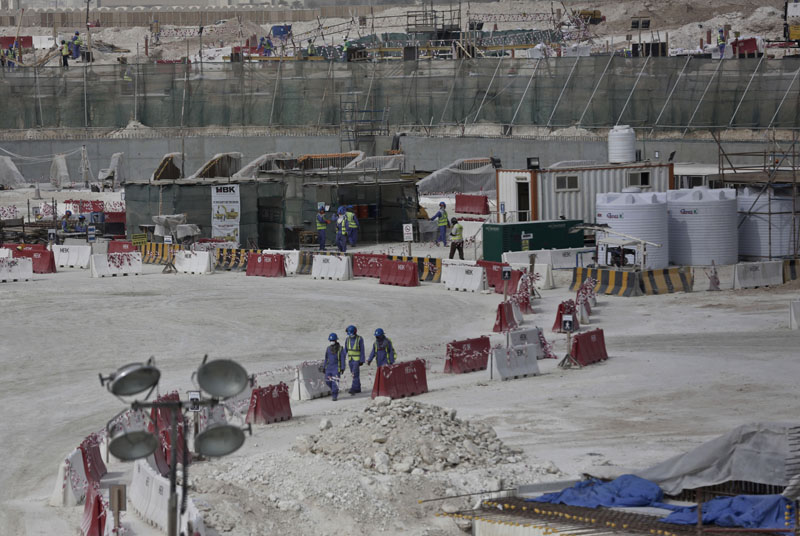Nepali workers to benefit as Qatar lifts ‘exit permit’ system
Kathmandu, September 6
The decision of the Qatari government to allow most migrant workers to leave the country without an exit visa will facilitate thousands of Nepalis working in the Arabian nation to return home without any hassles after completion of their work contract, as per recruiting agencies.
The government of Qatar on Wednesday partially scrapped the ‘exit permit’ that had been preventing migrant workers from leaving the country without their employers’ permission.
This decision of the Qatari government has been welcomed by labour-related international organisations, including International Labour Organisation (ILO) and Amnesty International. “The decision is an important first step towards dismantling Qatar’s
exploitative sponsorship system,” Amnesty International said in a statement issued today.
As Qatar is one of the major work destinations of Nepali migrant workers, both the government and recruiting agencies said that the recent decision of the Qatari government will facilitate almost 300,000 Nepalis currently working in Qatar.
“Due to lack of enough human resources and lengthy process to hire new employees, we had often received complaints of employers in Qatar extending work contract of Nepalis against their will and not facilitating them in acquiring exit permits even after their work contract had ended,” informed Rohan Gurung, president of Nepal Association of Foreign Employment Agencies.
According to him, this decision of Qatar will ease the process for Nepali workers to return home.
As per available data, an average of around 100,000 Nepalis go to Qatar for jobs every year.
However, the Qatar government’s decision allows employers to request exit permits for up to five per cent of their workforce, depending on the nature of their work.
Meanwhile, Uddhav Prasad Rijal, spokesperson for the Department of Foreign Employment, informed that Qatar’s decision to allow migrant workers to leave the country without an exit permit will also facilitate the government while rescuing stranded migrant workers.






